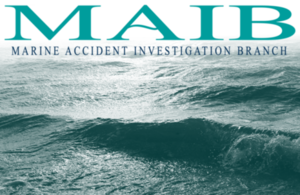Edinburgh company Gravitricity is developing a system that uses mine shafts to store and supply energy to the National Grid.
The system is the brainchild of serial inventor and technical director Peter Fraenkel. Peter previously worked with Gravitricity’s chairman Martin Wright when developing similarly innovative work for Marine Current Turbines.
Managing director Charlie Blair joined Gravitricity in 2015 after leaving the Carbon Trust. He was looking for a low-carbon innovation to help lower emissions more directly.
Charlie said: “Using gravity to store energy is already commonplace in pumped hydro, but using a solid weight has many advantages. There are a few companies out there that are using weights, but Peter is really great at simplifying things.”
Peter Fraenkel’s innovation was to hoist and suspend weights over disused mine shafts then use the power generated by lowering the weight inside the shaft to rebalance supply quickly.
Charlie added: “We’re responding to second-by-second or minute-by-minute imbalances on the Grid, which is more valuable. Our system has a lot of versatility, focusing initially on power.”
Independent analysis by Imperial College London supported the company’s claim that gravity energy storage was more cost-effective than current alternatives as well as being cleaner and having greater longevity.
Like many heavy engineering projects, Gravitricity has a timeline of five to six years before it can begin to recoup cost. The initial grant of £175,000 from Innovate UK solidified the concept in 2017.
“We had put a patent in, but there wasn’t really any push to do anything,” said Charlie. “The funding from Innovate UK enabled us to employ a couple of people and get moving.”
More mechanical engineers led to further innovation, including the development of a multi-weight concept that increases the flexibility and power of a single system.
Project development manager Chris Yendell started working for Gravitricity after the second Innovate UK grant of £650,000 was awarded in 2019. His work is currently focused on the company’s scale 250kW concept demonstrator, which will be installed in Edinburgh; later he will begin developing a full-scale prototype.
Chris said: “Working at Gravitricity, we’re really motivated by the cause. It’s more than ‘just a job’. The end goal is something we all believe in.”
The company has also built a strong working relationship with Dutch company Huisman Equipment BV to help Gravitricity develop its winches. Gravitricity is also building relationships in Eastern and Central Europe, and South Africa. Partnering with countries who still have working mines enables the company to work with mining specialists, which gives them an indication of where Gravitricity might go in the long term.
“The initial plan is to deploy in existing mine shafts,” said Chris, “but we’ve done feasibility on sinking new shafts and deploying where it’s needed, which includes right in the middle of a city or near a wind farm. We’ll carry on doing R&D work on that and hopefully work with Innovate UK to achieve it.”
